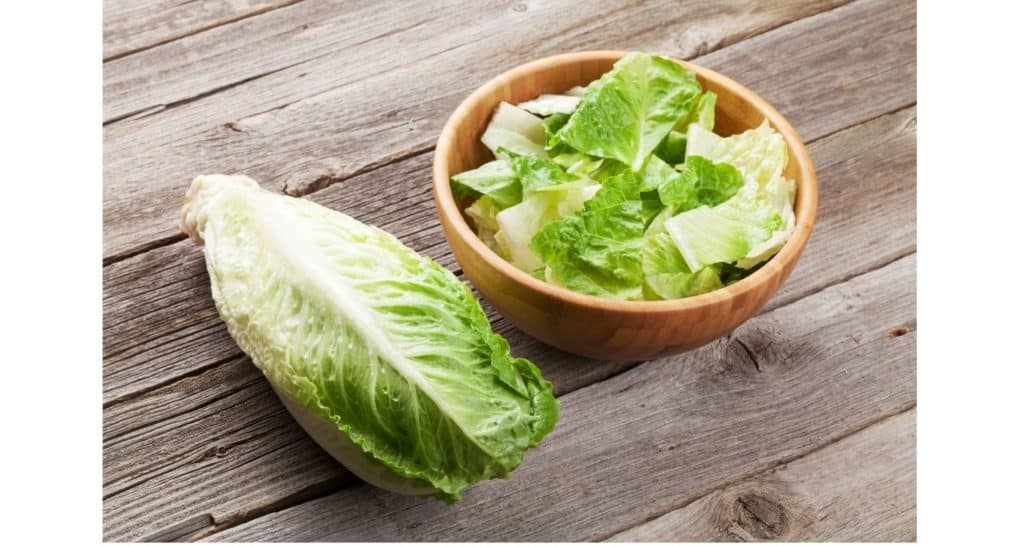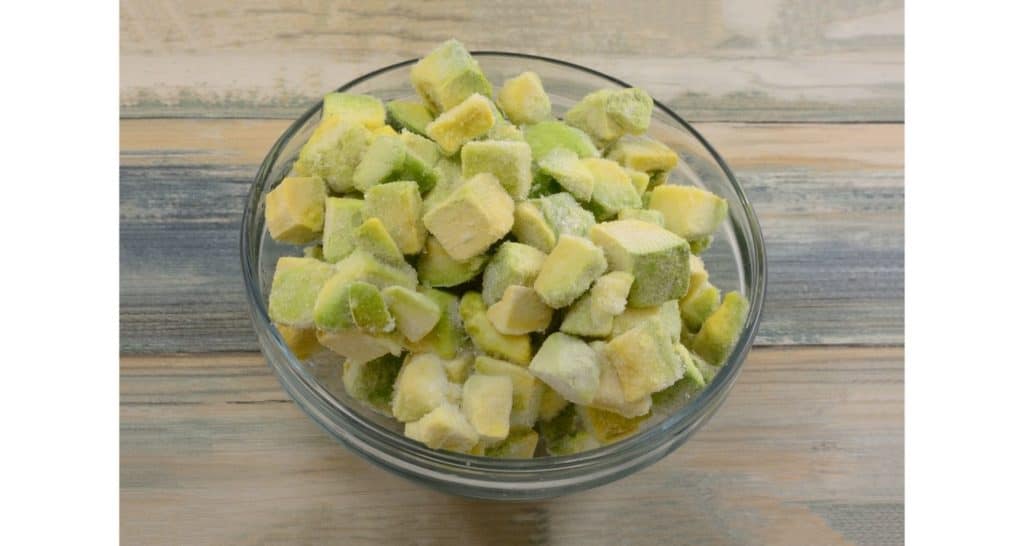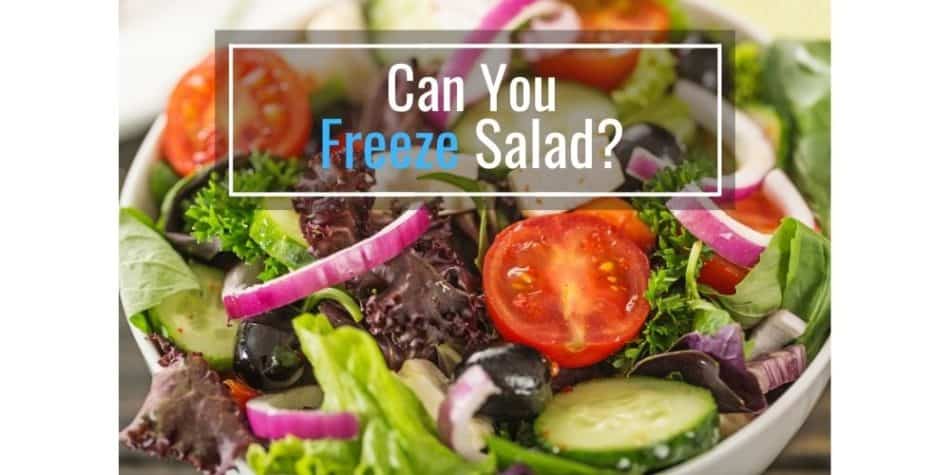Leftover salad or extra salads from meal prepping are a great problem to have. Typically we can toss the excess salads in the fridge and enjoy that fresh, healthy meal over the next 3 to 4 days.
However, what happens if we want to preserve the salad so that we can enjoy it next week? Normally we just toss food into the freezer to make them last longer but does this work for salad?
So can you freeze salad?
Salad should not be frozen. Most salads that are frozen and then thawed will either wilt or have a mushy texture. Not to mention any salad that already has the dressing mixed in will be even mushier once the salad and dressing are thawed. That being said, some salad ingredients can be frozen separately and combined after thawing.
Let’s cover which salad ingredients can and cannot be frozen.
Freezing Lettuce For Salads
Lettuce is the main ingredient in almost any salad recipe. Unfortunately, lettuce is one of the ingredients that should never be stored in the freezer if you want to use it in a salad.
Freezing and thawing lettuce will change its texture to the point where eating it raw will be unpleasant.

In fact, only lettuce varieties with low water content such as Romaine, Boston, butterhead, and loose-leaf lettuces are freezer friendly. Other common lettuce varieties with higher water content such as iceberg or Crisphead lettuces should not be frozen.
Frozen and thawed lettuce should only be used in cooked dishes or blended drinks.
See this Freezing Lettuce Guide for more information on what lettuce varieties can be frozen, how to properly freeze lettuce, and what to do with thawed lettuce.
How To Freeze Lettuce
If you plan on freezing lettuce then here are the quick steps to freezing lettuce properly.
Freezing Whole Heads Or Leaves Together
This is the easiest method for freezing lettuce. However, it should only be used if you plan on using the entire lettuce head or leaves when thawed. Use the other method if you plan to only use a portion of the lettuce at a time.
Follow these steps to freeze a whole head of lettuce:
- Make sure the lettuce leaves are completely dry
- Wrap the whole lettuce head or leaves in a paper towel
- Place the wrapped lettuce into a plastic bag or airtight container
- Write the expiration date on the container which is 6 months from today
- Place in freezer.
Freezing Lettuce Leaves Individually
Freezing each lettuce leaf will take a little more time but is a better option if you plan to only use a portion of the lettuce at a time. By freezing each leaf you will be able to take out what you need instead of thawing the whole head and letting the rest go to waste.
Follow these steps to freeze lettuce leaves individually:
- Make sure the lettuce leaves are completely dry
- Place a piece of paper towel in between each leaf
- Make sure the lettuce leaves are not touching
- Place the leaves into a plastic bag or airtight container
- Write the expiration date on the container which is 6 months from today
- Place in freezer.
This method is great for making your lettuce last since you will be able to take out as much lettuce as you want and keep the rest frozen. The paper towel in between each leaf makes sure you’re not stuck with a big frozen lettuce block.
Freezing Salad Ingredients
Beyond the lettuce, there is a wide range of ingredients that get added to different salad recipes. We’ll cover the most common ingredients and whether or not they can be frozen to be used in a salad once thawed.
Freezing Avocado In Salad
Avocados are not a good fruit to freeze if you plan on eating them raw. Frozen avocados that are thawed will feel slimier or mushier and will turn brown faster than a fresh avocado.

Thawed avocados are best used in guacamole, spreads, dips, and other dishes where the avocado is mashed together.
See the full Avocado Freezer Guide for more in-depth information on freezing avocados.
Freezing Tomatoes In Salad
Tomatoes are high in water content so they are not good fruits to freeze in a salad. Fruits with high water content will have this water turn into ice crystals which alters the texture. This is why thawed tomatoes will feel mushier or slimier.
Freezing Hard Boiled Eggs In Salad
Hard boiled eggs can have the yolks frozen without any issue for up to 6 months while the egg whites can turn rubbery when freezing. So hard boiled eggs can be partially stored in the freezer if you plan on only including egg yolks in your salad.
Freezing Carrots In Salad
Carrots are a great vegetable that can be frozen and used in a salad once thawed. Carrots are low in water content so are very freezer friendly.
So feel free to toss some carrots in the freezer for that future salad.
Freezing Cheese In Salad
Cheeses that have lower water content such as dry aged cheeses store well in the freezer. Parmesan, aged gouda, and other artisanal cheeses can be used directly on a salad once thawed.
Freezing Radishes In Salad
Radishes have high water content which means this vegetable is not freezer friendly. The texture will be altered when freezing due to the formation of ice crystals. This means when the frozen radish is thawed that it will have a mushier texture which is not ideal for eating raw in a salad.
Freezing Salad Dressings
The food items that store the best in the freezer are ones with lower water content. Most, if not all, salad dressing have a high water content meaning it will not store very well in the freezer.
Salad dressing that is stored in the freezer will have a noticeable change in the flavor and texture.
Most salad dressings have a relatively long shelf life if stored properly in the refrigerator. So it’s best to keep salad dressing in the fridge.
Final Thoughts
Storing extra salads in the freezer is a tempting thought especially if you’re meal prepping and want to plan healthy salads a week in advance.
However, salads do not store well in the freezer. In fact, it’s best to keep salads in the fridge and enjoy them within 3 to 4 days.
Any salad stored in the freezer will turn mushy and slimy which is not what anyone wants out of their next salad.

